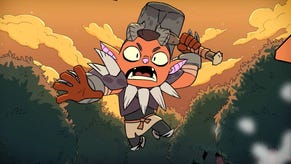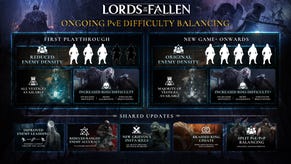Alan Wake 360 competition winners announced
Microsoft gave us the an Alan Wake-ified 360 as a competition prize, making VG247 the only UK games site to have such a thing. We asked you for questions to send to Remedy, with the best answer taking the machine and two follow-ups getting Special Editions.
Remedy's Mikki Rautalahti came back with some awesome quotes. Job well done.
So. The winners are...
Main winner - OlderGamer:
With each year that passes, not only does the average age of the gaming public increase but far more women game too. How does that impact the game, its content, presentation, and the overall development process?
Mikki Rautalahti: We did want to specifically make a game that wasn’t intended for children as such – I mean, clearly younger people can play it and get a lot out of it, but I think our ideal player was an adult, somebody who can relate to story elements like Wake’s marital problems, because things like that are a huge part of Wake’s motivations and the story that we’re telling.
I think there’s a tendency to kind of underestimate your audience in video games, to dumb things down. You kind of go for the low-hanging fruit a lot of the time, you know? And it’s not because the people making the games don’t have any vision, it’s just that there’s a lot of pressure to do that, to follow those video game conventions even when they aren’t doing you any good.
As for women, I really don’t think they require any kind of special treatment. You tell a good story and make the gameplay fun, I think they’re going to be interested. The classic video game industry approach has been kind of ham-handed, the equivalent of making things pink and sticking Barbie in there. “Hey, let’s talk about shoes and shopping, tee hee!” But I know a lot of women who play games, and they really don’t care about any of that, or about whether the main character is a man or a woman. That doesn’t matter to men, so why would it matter to women? They just want to play good games that don’t treat them like they’re idiots.
We very intentionally made a game that has a lot of female characters. Some of them are goofy, sure, but that definitely goes for the men in Alan Wake as well. But a lot of them aren’t. Actually, I read one review that said that Alice set female characters in video games back ten years, because she’s afraid of the dark, and I really felt weird about that. Yeah, we have flawed characters. Alice has a strong phobia, but she’s also smart and funny, and she doesn’t dress like she just escaped from a porn movie. Wake has his own flaws – he drinks too much, his impulse control sucks, he prefers brooding to working… These aren’t perfect people, but I think these are things people can relate to. We really, really didn’t want to make them vacuous people who’re only motivated by a mission to DESTROY THE BAD EVIL, you know? That’s not a personality, that’s just a job.
I don’t think we need to make games that are specifically geared towards women… but it would probably be a good idea to make fewer games that are specifically geared towards adolescent boys.
Second place - JoeX111:
One of the more prominent themes in Twin Peaks is that the aw-shucks good-naturedness associated with small-towns is just a front for dark dealings behind closed doors. Many Stephen King novels also explore this same theme. As both Twin Peaks and King were obvious influences on “Alan Wake,” what can Bright Falls tell us about isolated communities and the people who thrive there? Is there any larger social commentary beneath the psychological action thriller aspects of the game?
Mikki Rautalahti: Well, we’re not saying that everybody who lives in a small town is either crazy or evil, if that’s what you mean. But I think places like that are very interesting, because everybody knows everybody. You don’t have that anonymity that big cities bring.
I mean, I live in Helsinki, which isn’t even a huge city by international standards, but even so, I don’t know a single one of my neighbors. I say “hi” when we pass in the corridor, and that’s it. But we have this cabin out in the country, and when I’m up there, sometimes I’m walking down a road and somebody I’ve never seen before comes along in a car, slows down, rolls down the window and says hi and tells me where he lives, and we chat for a moment and then he goes, “well, gotta go.”
It’s just a very different dynamic, and I think when you’re in a situation like that, you probably know a lot of stuff about other people that would ordinarily be considered kind of private in a more urban environment. You know who’s got that drinking problem, who had the affair, all sorts of little secrets, and we’ve all got ‘em. Some of us have things that are just really bad, and I bet those don’t stay too secret either, even if people politely refrain from talking about them in public. From a storytelling point of view, that’s a great thing, there’s a lot in there to work with. But I’m not sure if that makes it a social commentary.
Third place - Blerk:
Given that traditional horror games appear to be floundering or becoming more like standard third-person shooters, did you have specific ideas on how to reinvent the genre for the 21st century right from the start? Were there things that you definitely wanted to do or to avoid in order to stand out from the crowd or broaden the game’s appeal beyond the usual horror game fanbase?
Mikki Rautalahti: Well, Remedy had done Max Payne before, and there was really no desire to just do the same thing all over again. That was a big motivation for us, to do something that had a different tone and different gameplay experience. Honestly, I don’t know if we set out to reinvent anything. I think that kind of thing is generally determined by history, anyway.
But I do know that we didn’t really set out to make a horror game – we think of it as a thriller, a tense and exciting and unpredictable journey with lots of twists and turns in the way. To a great extent, it‘s a mystery game. I know we kind of get put in the same category with horror games, and that’s not unreasonable, but that just wasn’t how we approached the project ourselves.
That said, I do think we may very well appeal to people who generally stay away from scary games, because the way we handle things is very different. We’re far more about the tension than the sudden scare, and we don’t have a lot of blood and gore. There’s that classic horror game situation where you see a trail of blood, and you follow it to this room that has bodies all over the place, hanging from butcher hooks in the ceiling, the walls are painted red. And you go, “oh, this is bad, this is so goddamn bad,” and that’s a very visceral experience when you do it right. The Silent Hill games do that kind of thing particularly masterfully, I think.
But we specifically didn’t want to do anything like that. That’s like being hit in the face with a hammer. You can get a really strong reaction like that, but there’s also a sort of a release of tension there, because when you’re in that situation, you know where you stand, if only for the moment. We really wanted to build the tension and keep tightening the screws in ways that are much less obvious. We wanted the threat to be more nebulous and pervasive, harder to grasp and harder to deal with.
Congrats to all the winners, and many thanks for everyone who entered. Sorry there aren't more prizes. Microsoft was knocked out by the quality of the questioning here, so we're soon going to be doing one of these on another first-party 360 game coming out this summer. Clue: it's called Crackdown 2.
All winners please send a mailing address to patrick [at] vg247.com, and MS will get the goodies right over. Well done!



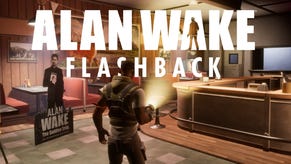


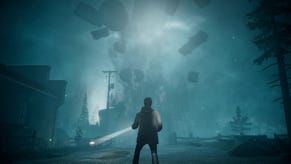
.jpg?width=291&height=164&fit=crop&quality=80&format=jpg&auto=webp)
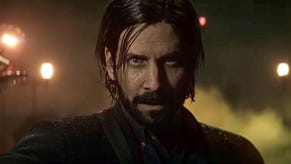
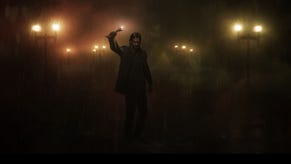
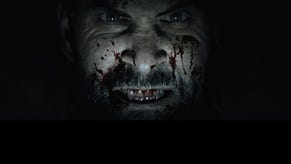
.png?width=291&height=164&fit=crop&quality=80&format=jpg&auto=webp)
